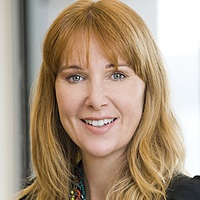Screening out the noise

Fidelity International
If there’s one thing the market’s not short of, it’s noise. With newsreels looking for a quick sugar hit, it’s easy to get clouted in the latest headlines. For investors, this raises many questions. Is inflation coming back? Are bond yields going to take off on a tear? What will this mean for a record-long bull run? And what about trade wars?
Below, we ask two of our Australian Portfolio Managers; Kate Howitt and James Abela, to see how they distinguish between what’s noise, and what’s not.
Kate Howitt:
Screening out noise is related to the question of volatility, and the central thing is your timeframe. So the more that you're operating on a trading mentality, or on a short-term mentality, the more what happens day to day really matters to you. Increasingly that's the space that's being taken over by machines and algorithms. There are machines that can spot infinitesimal arbitrage points better than me. Where human active managers have more of an edge is looking out at longer time frames. What machines haven't yet figured out is predicting the future of industries. I.e. how the basis of competitive advantage is changing in an industry and therefore who are going be the winners and losers.
So when you're making your investment thesis on a multi-year view, rather than a day-week-month view, then volatility can become your friend because if there's dislocation in the share price one way or another, you'll be able to take advantage of that. If you've been looking to buy a great company and something happens that it's off 8%, happy days. So it's making sure that you're aware of yourself, what your thesis is, what your time frame is, and then being someone who can make use of volatility rather than chasing your tail.
“When you're making your investment thesis on a multi-year view, rather than a day-week-month view, then volatility can become your friend”
James Abela:
We're at the crossroads in terms of the end of the bull market. There’s a lot of late cycle signals, and lots of M&A. You're getting signals from the bond market, you're getting signals not only from individual stocks, but you're now getting individual countries (think Argentina and Indonesia).
Ultimately, you need to reconsider risk. It’s being repriced. Risk is everywhere. Risk is bottom-up, risk is in portfolio construction, risk is geopolitical, and so forth. Last year, things were very easy-going. However, as the year started, the awareness of risk increased dramatically. As a result, it’s made markets wobble. It’s increased volatility, and it’s increased yields. Inflation's going up and commodities going up, so I think a lot of these things have just pushed risk to now top of mind, which has been back of mind for a number of years.
What this means for me is, you go further away from debt, away from companies that need liquidity, away from companies that need high multiples to survive and move towards cash flows.
“What this means for me is, you go further away from debt, away from companies that need liquidity, away from companies that need high multiples to survive and move towards cash flows.”
This excerpt has been taken from Fidelity’s “Australian equities panel discussion: Part 2 Screening out the noise”. To see the original article, click here.
4 topics
2 contributors mentioned

Alva was appointed as Managing Director of Fidelity International’s Australian business in 2016. Alva is accountable for ensuring that Fidelity’s global investment strategies deliver the best outcome possible for Australian clients.
Expertise

Alva was appointed as Managing Director of Fidelity International’s Australian business in 2016. Alva is accountable for ensuring that Fidelity’s global investment strategies deliver the best outcome possible for Australian clients.
